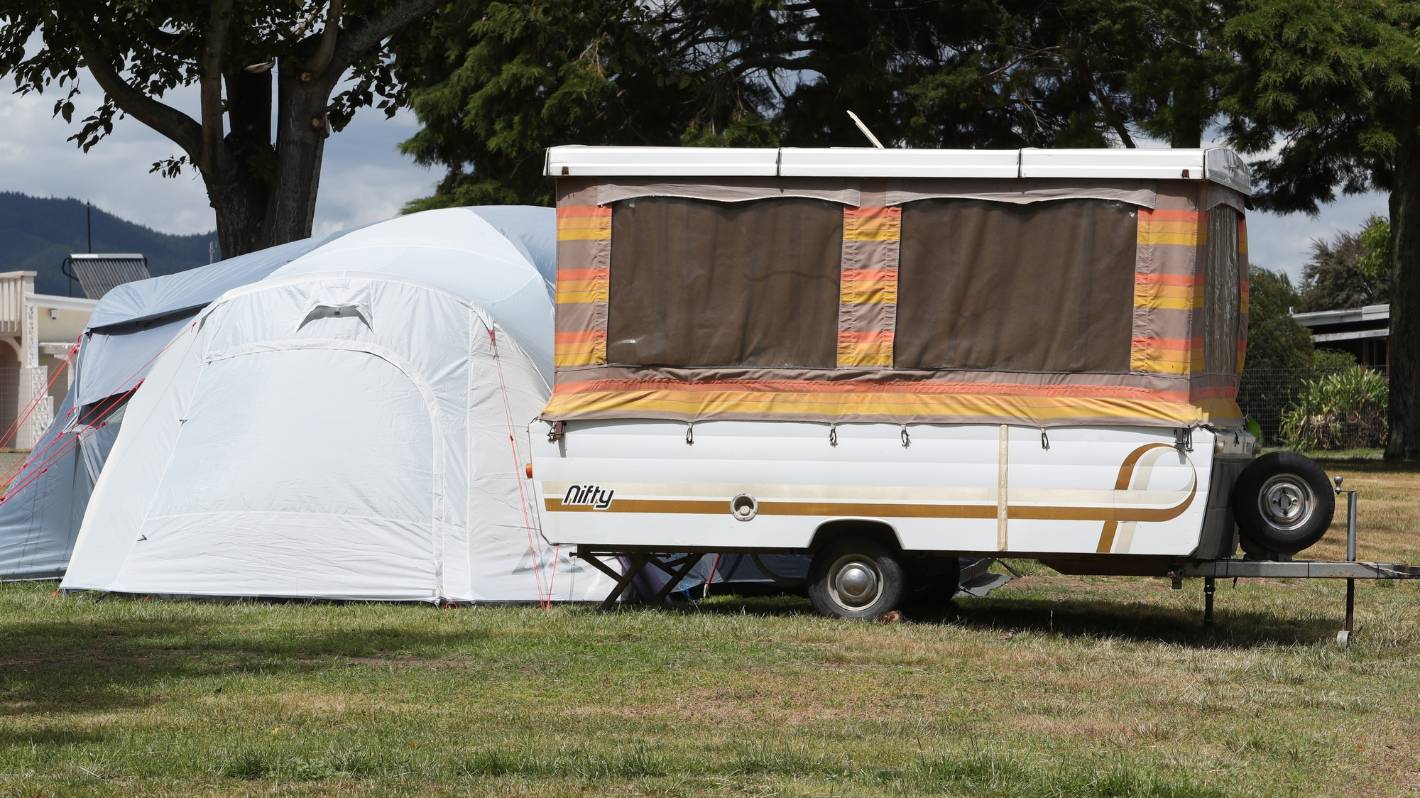MARION VAN DIJK/Stuff
Some Northland whānau live in tents, caravans, cowsheds or cars, says Te Pouahi trustee Hūhana Lyndon. (File photo)
A new injection of Government funding for Māori housing needs in Te Tai Tokerau aims to help whānau living in tents, cowsheds or cars.
The $55 million funding over three years will be used to help deliver infrastructure for 110 houses and supply 80 homes in Northland.
The money has been committed to Te Pouahi o Te Tai Tokerau, a trust involving Northland Māori housing service providers, iwi, hapū and land trusts.
The trust has canvassed 53 projects under way in Northland and found they need a variety of support, from help with resource consent to funding for materials, said interim trustee Hūhana Lyndon, who is also chief executive of Ngātiwai.
READ MORE:
* Northland’s housing crisis sees social housing waiting list soar, street living
* Poverty will cripple Māori if housing crisis is not addressed – iwi leader
* Taranaki whānau buy first home under iwi shared ownership model
Te Pouahi aims to be a one-stop shop to help projects get off the ground and deliver housing for Māori in the north, she said.
“It’s a big deal – the scale [of funding] has never happened in Northland,” Lyndon said.
Supplied
Hūhana Lyndon, interim trustee of Te Pouahi o Te Tai Tokerau, says the housing crisis in Northland is large, with organisations needing a variety of support to provide Māori housing.
“There are 53 projects underway but we could have 800 homes if we had enough dollars to spread around.”
The focus on Māori housing comes from the Government’s MAIHI Ka Ora, the National Māori Housing Strategy, in response to low rates of Māori home-ownership.
In Te Tai Tokerau, there is high social depravation, with families living in tents, cowsheds or cars, Lyndon said.
Some leaders have noticed people sleeping on the streets in small towns like Kaitāia, while Kāinga Ora’s housing register has ballooned 600% since late 2017.
Lyndon said Māori had been left with remnant pieces of land, were unable to buy in their territory and had intergenerational disconnection with their whenua.
“We’ve been at the bottom of the chain for a long time … This is our effort contributing to [undoing] the housing crisis.”
The project will also help create local jobs and help improve the wellbeing of the region as a whole, she said.
“Having a healthy, safe and warm home contributes to wellbeing overall. If we can achieve this space and compliment the existing projects, we’re going to really improve where we are as a region.”
RNZ
The Detail: Most recent figures show Māori home ownership rate was 31% compared to 52% for the total population. (first published in June 2021)
Lyndon acknowledged the package would not be a silver bullet and continued investment would be needed.
Whānau moving into kāinga on rural whenua would still need social support and work, she said.
Associate Minister of Housing (Māori Housing) Peeni Henare agreed the housing challenges in Te Tai Tokerau were “significant” but said the Government was committed to action.
“We know that we cannot tackle this housing crisis alone. The key to success lies in partnership.”
Te Pouahi is the fourth organisation to receive Government funding for Māori housing, after Toitū Tai Rāwhiti (East Coast), K3 (Kahungunu, Hawkes Bay) and Ka Uruora (Taranaki) – with each group providing a model for their region.
Lyndon said the funding announcement for Te Pouahi this week meant the newly formed trust would have to work hard over Christmas to get started, with the aim of officially launching in the new year.
Its first regional hui will be held on November 16 at Whitiora Marae, Te Tii.




